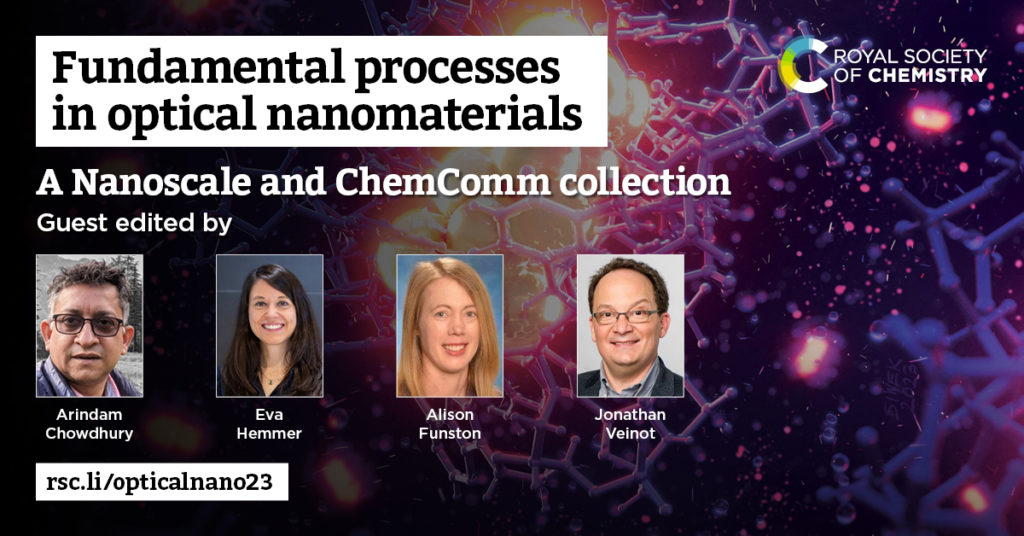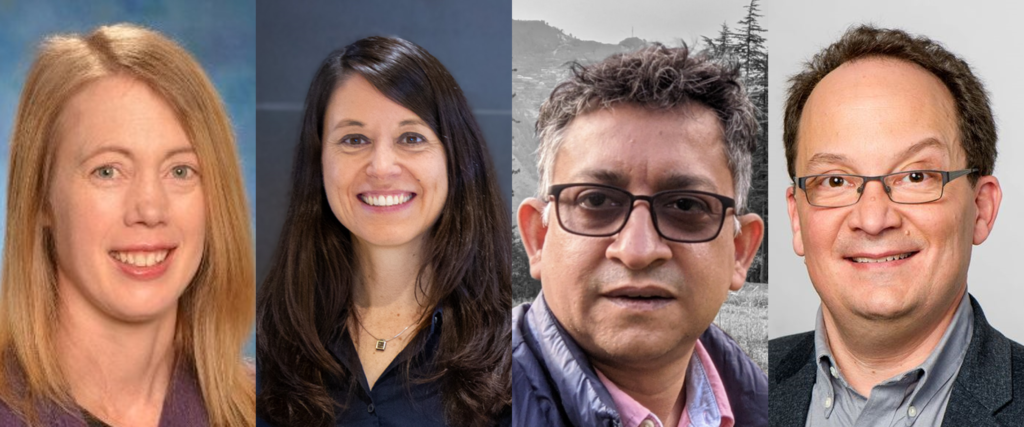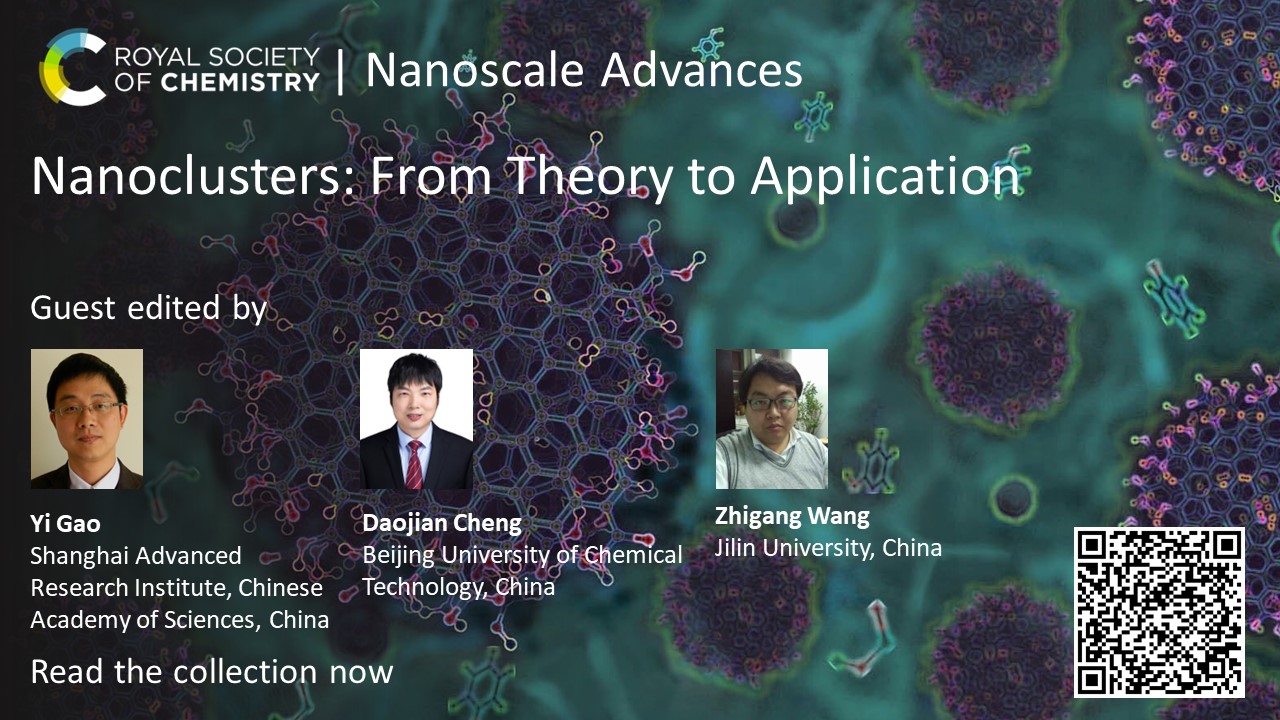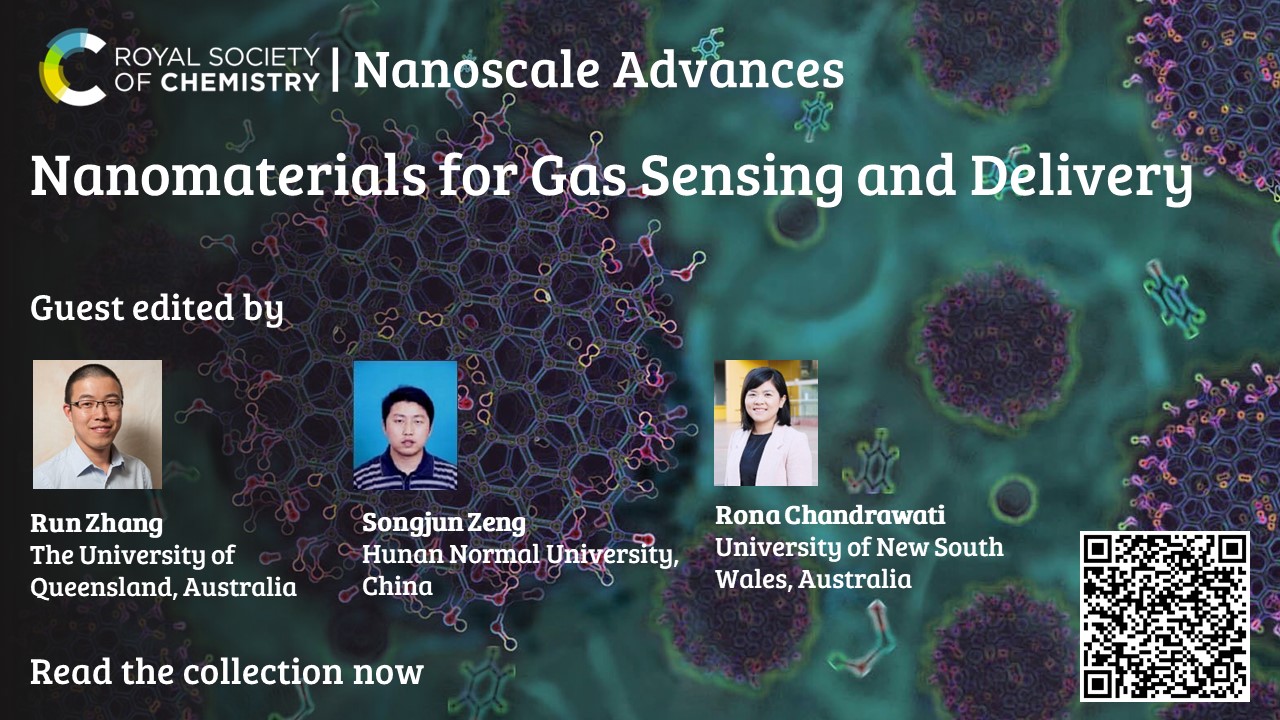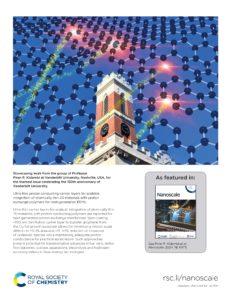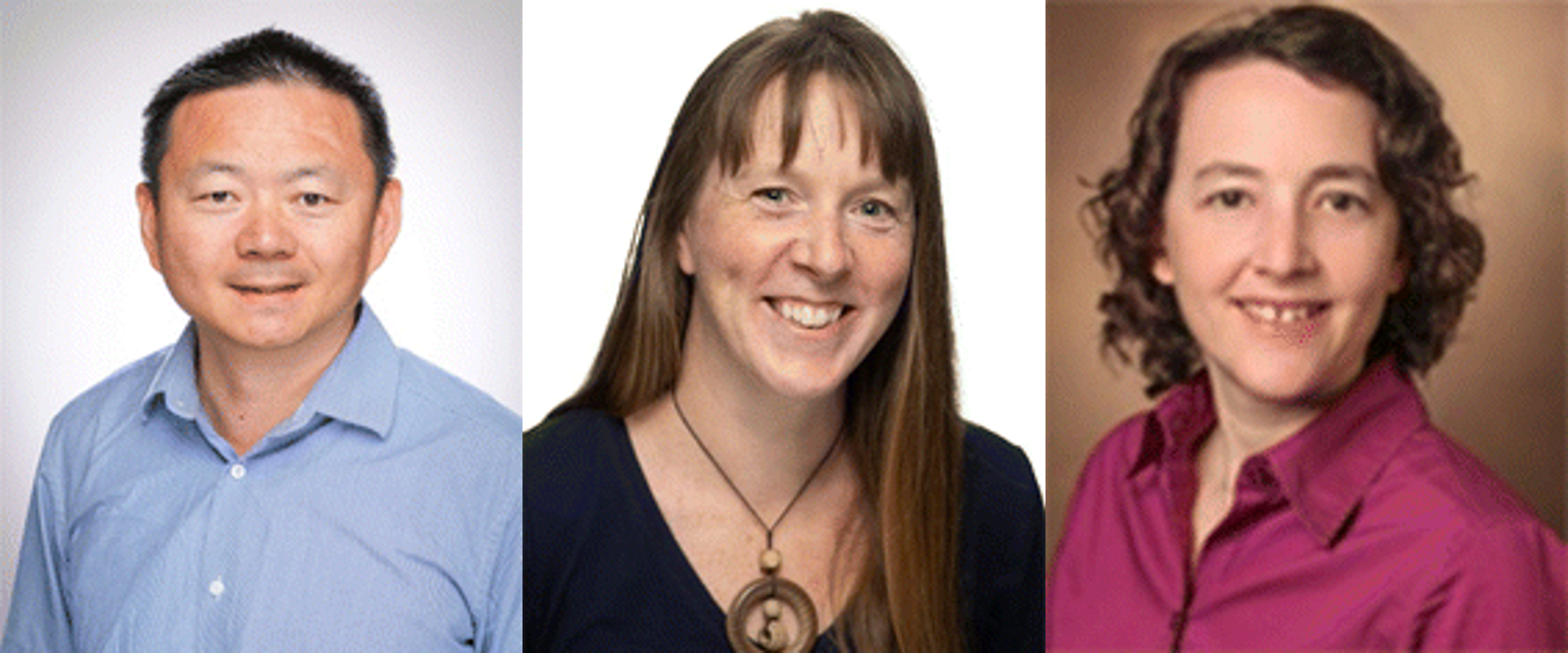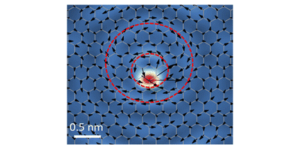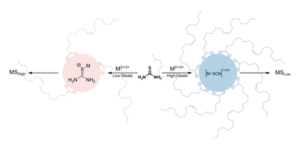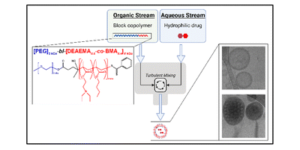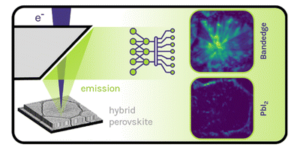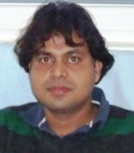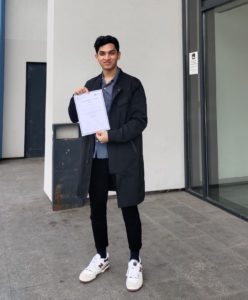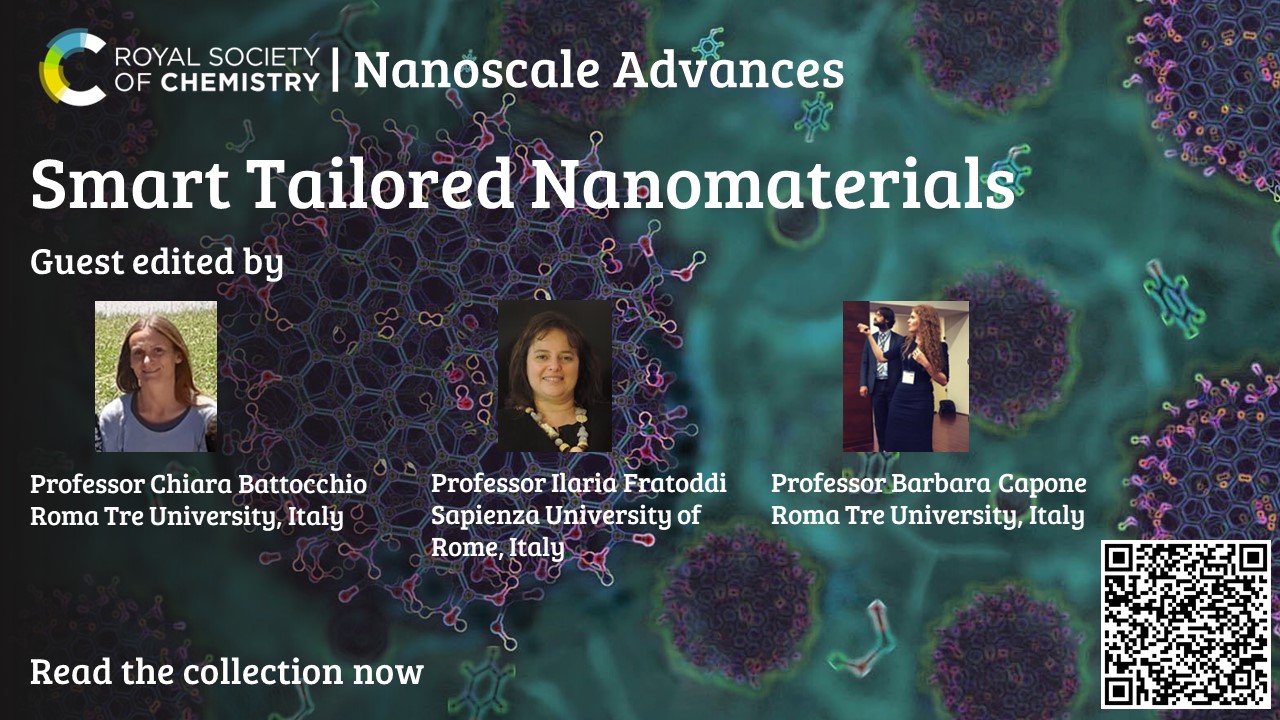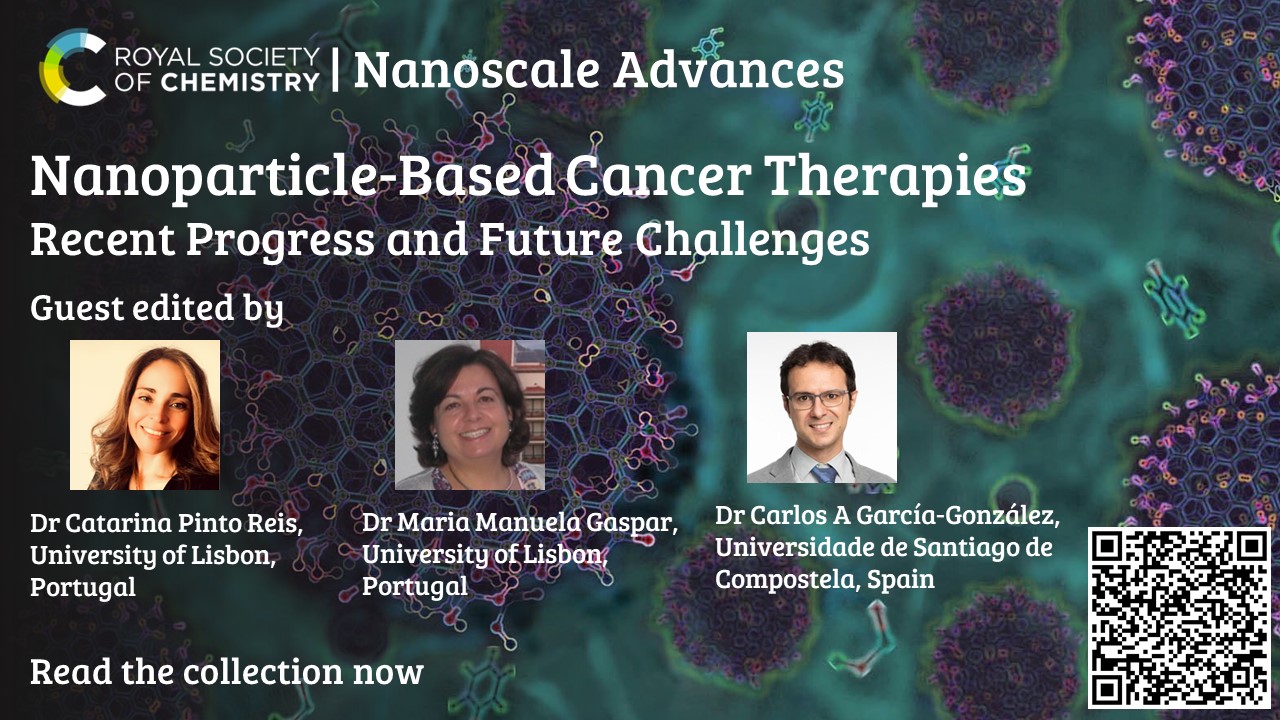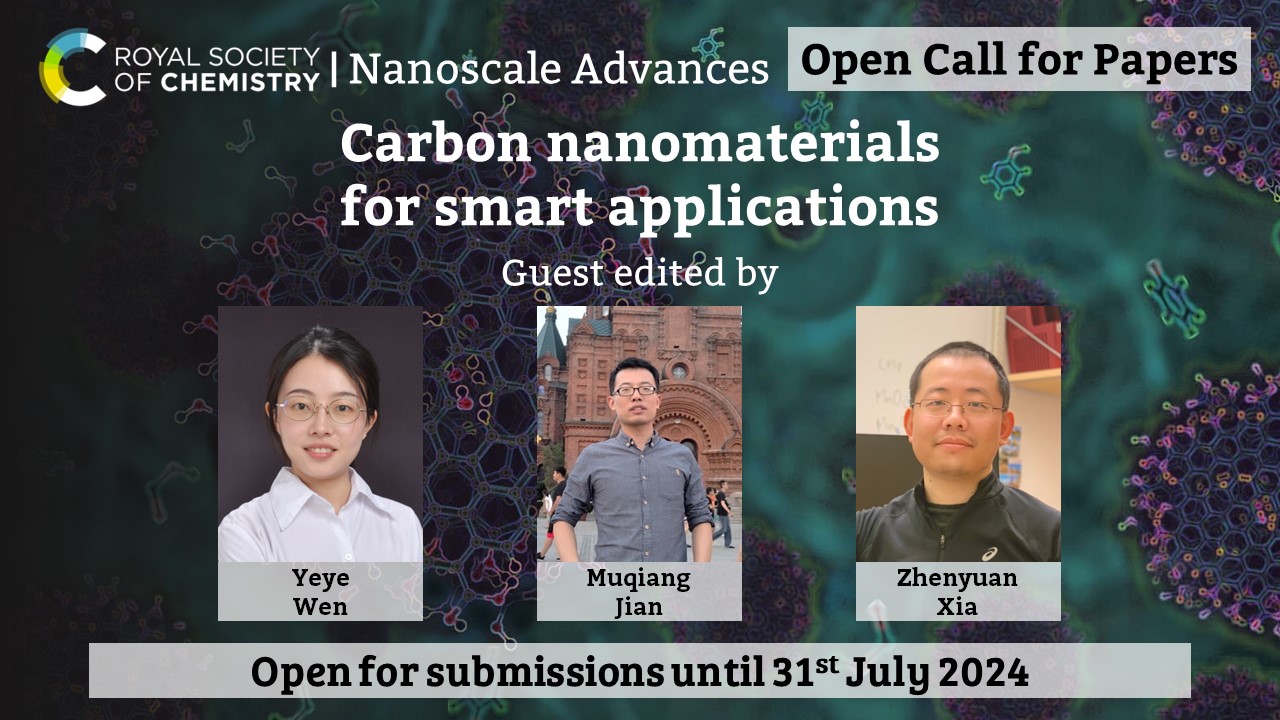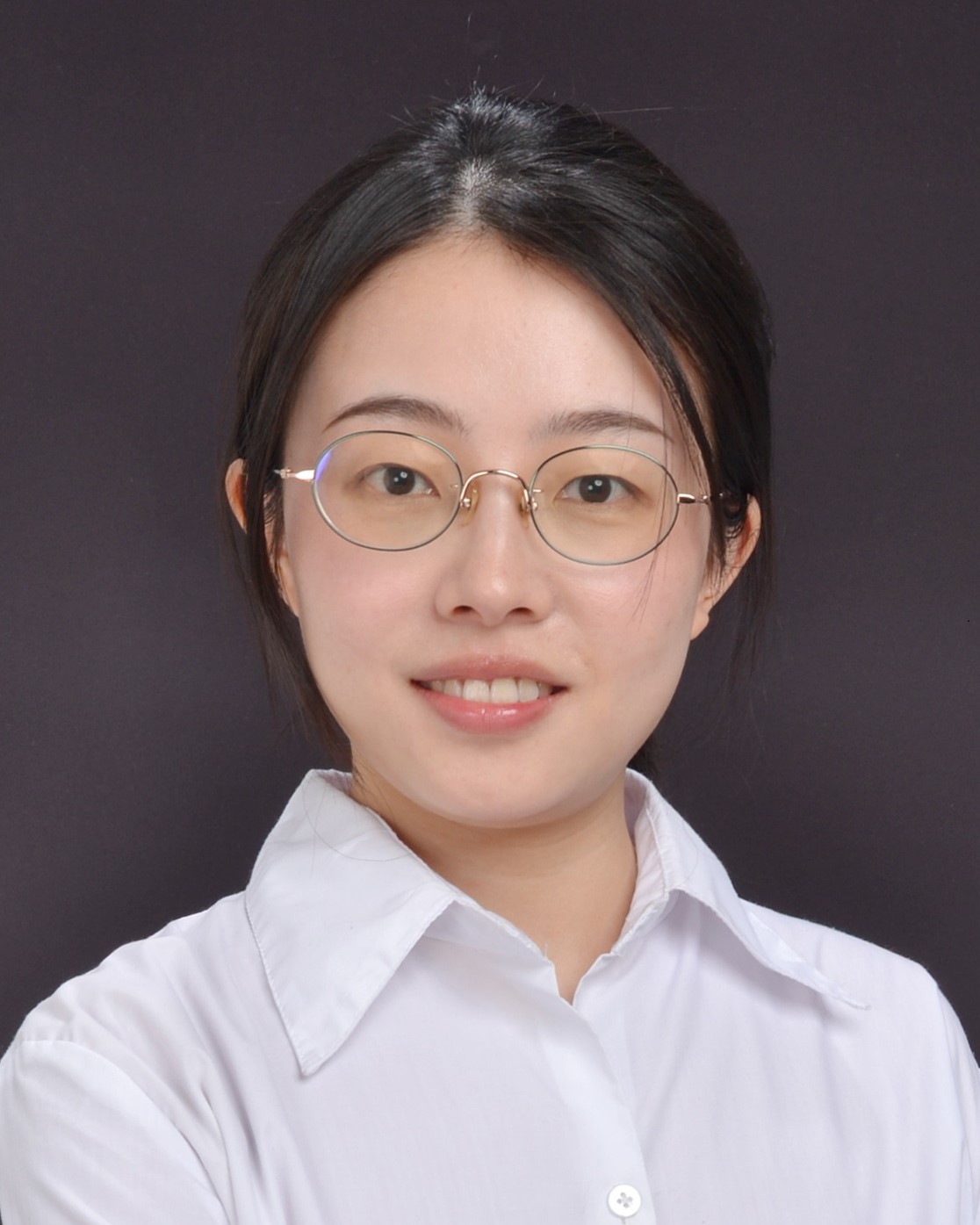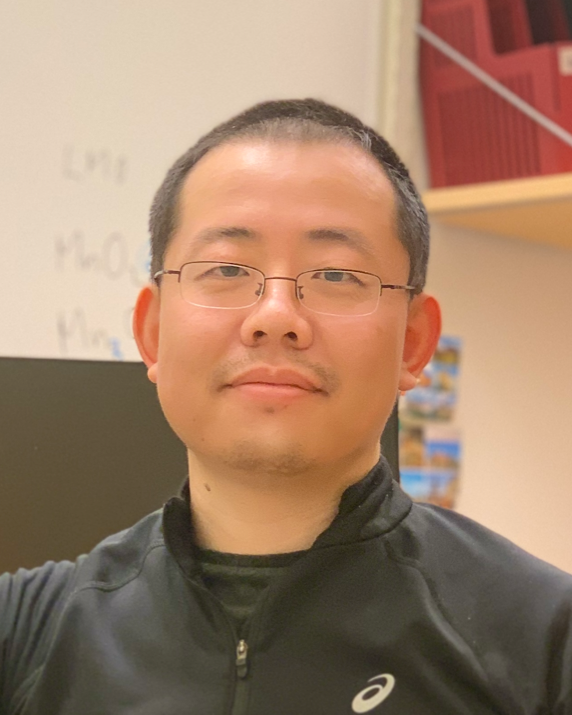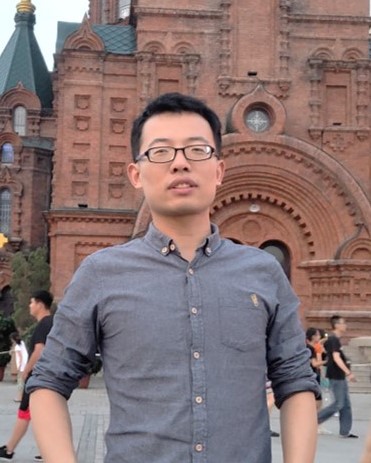Fundamental processes in optical nanomaterials
Guest edited by Arindam Chowdhury, Alison Funston, Eva Hemmer and Jonathan Veinot
Advanced optical nanomaterials are the building block to innovative technologies that have the potential to address societal challenges from energy to health. Optical nanomaterials offer solutions to more efficient energy harvesting and energy conversion technologies, to enhanced data storage and fast and secure telecommunication, or to more efficient and personalized biomedical approaches, to name just a few examples. To achieve the goal of real-life applications, better understanding of known processes and the discovery of new fundamental phenomena is key. We are delighted to share this special collection in Nanoscale, and ChemComm featuring the latest processes, phenomena, applications, and fundamental science in optical nanomaterials.
You can explore the collection and read the introductory editorial from our guest editors below, with all articles free to access until the end of July 2024.
Read the collection
Professors Alison Funston, Eva Hemmer, Arindam Chowdhury and Jonathan Veinot served as guest editors for this collection and highlight the vast potential for optical nanomaterials and the significance of their properties and applications in their introductory editorial.
Read the introductory editorial
All of the articles in the collection are free to access until the end of July 2024. Read some of the featured articles below.
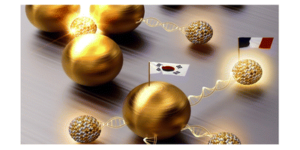 Plasmonic quenching and enhancement: metal–quantum dot nanohybrids for fluorescence biosensing Plasmonic quenching and enhancement: metal–quantum dot nanohybrids for fluorescence biosensingNiko Hildebrandt, Mihye Lim, Namjun Kim, Da Yeon Choi and Jwa-Min Nam Chem. Commun., 2023, DOI: 10.1039/D2CC06178C |
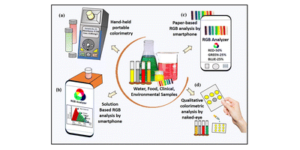 Progress in the design of portable colorimetric chemical sensing devices Progress in the design of portable colorimetric chemical sensing devicesTushar Kant, Kamlesh Shrivas, Ankita Tejwani, Khushali Tandey, Anuradha Sharma and Shashi Gupta Nanoscale, 2023, DOI: 10.1039/D3NR03803C |
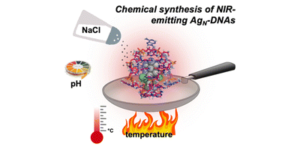 Heat, pH, and salt: synthesis strategies to favor formation of near-infrared emissive DNA-stabilized silver nanoclusters Heat, pH, and salt: synthesis strategies to favor formation of near-infrared emissive DNA-stabilized silver nanoclustersRweetuparna Guha, Malak Rafik, Anna Gonzàlez-Rosell and Stacy M. Copp Chem. Commun., 2023, DOI: 10.1039/D3CC02896H |
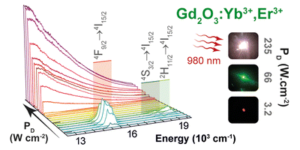 Exploring the intra-4f and the bright white light upconversion emissions of Gd2O3:Yb3+,Er3+-based materials for thermometry Exploring the intra-4f and the bright white light upconversion emissions of Gd2O3:Yb3+,Er3+-based materials for thermometryTalita J. S. Ramos, Ricardo L. Longo, Carlos D. S. Brites, Rute A. S. Ferreira, Oscar L. Malta and Luís D. Carlos Nanoscale, 2023, DOI: 10.1039/D3NR01764H |
Nanoscale is a high-impact international journal, publishing high-quality experimental and theoretical work across the breadth of nanoscience and nanotechnology. Our broad scope covers cross-community research that bridges the various disciplines involved with nanoscience and nanotechnology. ChemComm is the Royal Society of Chemistry’s journal for short communications of outstanding significance from across the chemical sciences. The RSC’s most cited journal, ChemComm has been one of the most trusted chemistry journals for over 60 years. Our scope covers all topics in chemistry, and research at the interface of chemistry and other disciplines (such as materials science, nanoscience, physics, engineering and biology) where there is significant novelty in the chemistry aspects. We hope you will consider Nanoscale and ChemComm for your future submissions.
We hope you enjoy reading this collection and look forward to showcasing more work on optical nanomaterials in the future. Please continue to submit your exciting work to Nanoscale and ChemComm.


